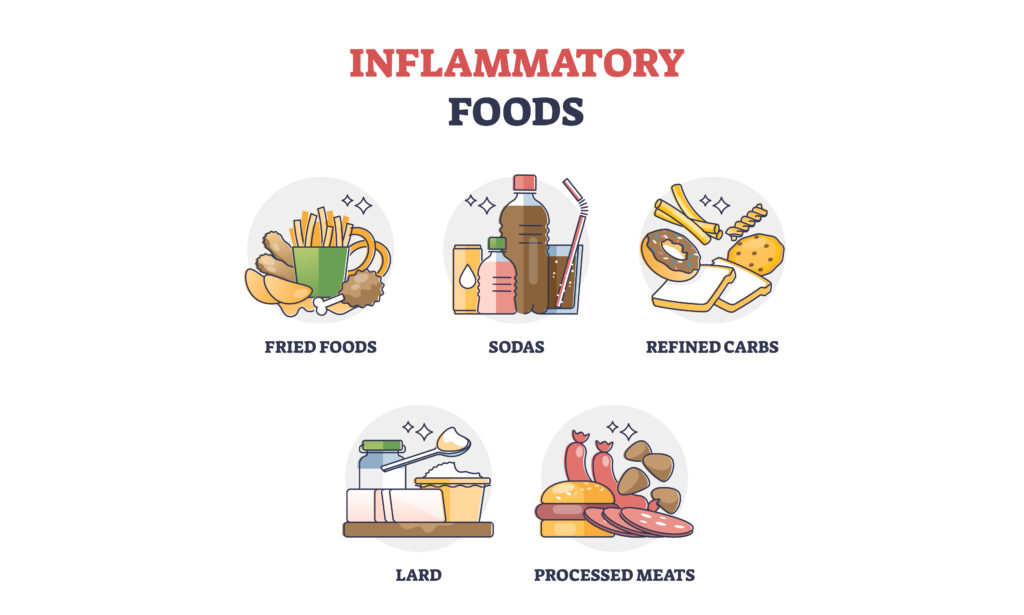When the thyroid is functioning well, the body is in balance. However, when it is not functioning properly, it can lead to a variety of health problems, including weight gain, fatigue, and depression. In addition, thyroid function and health are at their best when the body is healthy.

It is important to learn about the effect of diet and exercise on thyroid health. Adequate nutrition achieved through a balanced diet that includes all essential nutrients provides the thyroid with the necessary building blocks to produce sufficient amounts of thyroid hormones.
Similarly, regular physical activity in the form of exercise, sport, or leisure daily movement helps moderate metabolism. It supports overall health, promoting well-being and optimal thyroid function.
In what follows, we’ll discuss the importance of lifestyle to overall thyroid health and function. More specifically, we’ll explore the effects of diet and exercise on thyroid health.
Effects of Exercise on Thyroid Health
Regular exercise has numerous benefits for overall health, not limited to its effects on the thyroid. Research has shown, however, that regular physical activity, particularly aerobic exercise, can positively affect the function of the thyroid and produces an increase in the total serum concentration of T3 and T4 hormones.

Anaerobic exercise, meaning higher-intensity exercise, has also been shown to affect thyroid hormone values in both men and women. Thus, it’s reasonable to conclude that exercise in any capacity can be beneficial for thyroid health.
One of the ways in which exercise can improve thyroid function is through its effect on metabolism. The thyroid regulates the body’s metabolism and controls the amount of energy the body burns. Exercise works in tandem with the thyroid, affecting body metabolism, which can help the thyroid work more efficiently.
Exercise has also been shown to dramatically reduce stress levels, which has a positive impact on overall thyroid function. As a result, the thyroid can focus its energy on maintaining optimal health without the disruption of thyroid hormone function that stress causes.
Other studies have shown that body mass index (BMI) positively correlates with thyroid-stimulating hormone (TSH) levels, which is seen in hypothyroidism. Since exercise can lead to a decrease in BMI, this may prove to be helpful in a preventative manner.
Effects of Diet on Thyroid Health
The food we consume can have a significant impact on our thyroid health. A balanced diet that provides the body with essential nutrients can help support thyroid function, while a diet high in processed foods can increase the risk of developing thyroid problems.
First, a balanced diet that includes all essential nutrients, such as vitamins, minerals, and amino acids, can provide the thyroid with the building blocks it needs to produce essential hormones in sufficient amounts. Conversely, a diet deficient in these essential nutrients can directly interfere with thyroid function and lead to several problems.
Second, a balanced diet isn’t balanced if it isn’t a diet rich in iodine, an essential mineral that is needed for the production of thyroid hormones. This holds particularly true for those looking to reduce the risk of thyroid dysfunction. Eating foods that are rich in iodine, such as seaweed, dairy products, and seafood, can help ensure that the body has enough iodine to support proper thyroid function.
It’s important to note that selenium has been proposed for supplementation for individuals with autoimmune thyroiditis, yet recent studies have shown that the evidence is not sufficient to support its effectiveness.

Finally, a diet that you want to avoid is a diet high in processed foods which can cause a host of issues not limited to an increased risk of developing thyroid problems. Processed foods are often high in unhealthy fats, added sugars, and preservatives, which can cause inflammation in the body.
This inflammation can ultimately interfere with thyroid function and can lead to problems such as hypothyroidism or hyperthyroidism. A diet high in processed foods can also contribute to weight gain, which can put further stress on the thyroid and contribute to thyroid dysfunction.
As more and more health problems are seen with processed foods, along with the rapid rise of type 2 diabetes in the population, it will likely become more apparent that eliminating this unhealthy food can dramatically improve an individual’s health.
Ultimately, it’s about finding the diet that’s right for you and maintaining this diet. Our gut and internal organs work in complex and unique systems, with each individual requiring different nutritional demands.
Final Thoughts
The effects of exercise and diet on thyroid health are significant and interrelated. Regular exercise has correlated with healthy thyroid function and may help reduce the risk of developing thyroid conditions, such as hypothyroidism and hyperthyroidism. A balanced diet that provides the body with essential nutrients and is low in processed foods can help support thyroid function and may reduce the risk of future thyroid problems.
